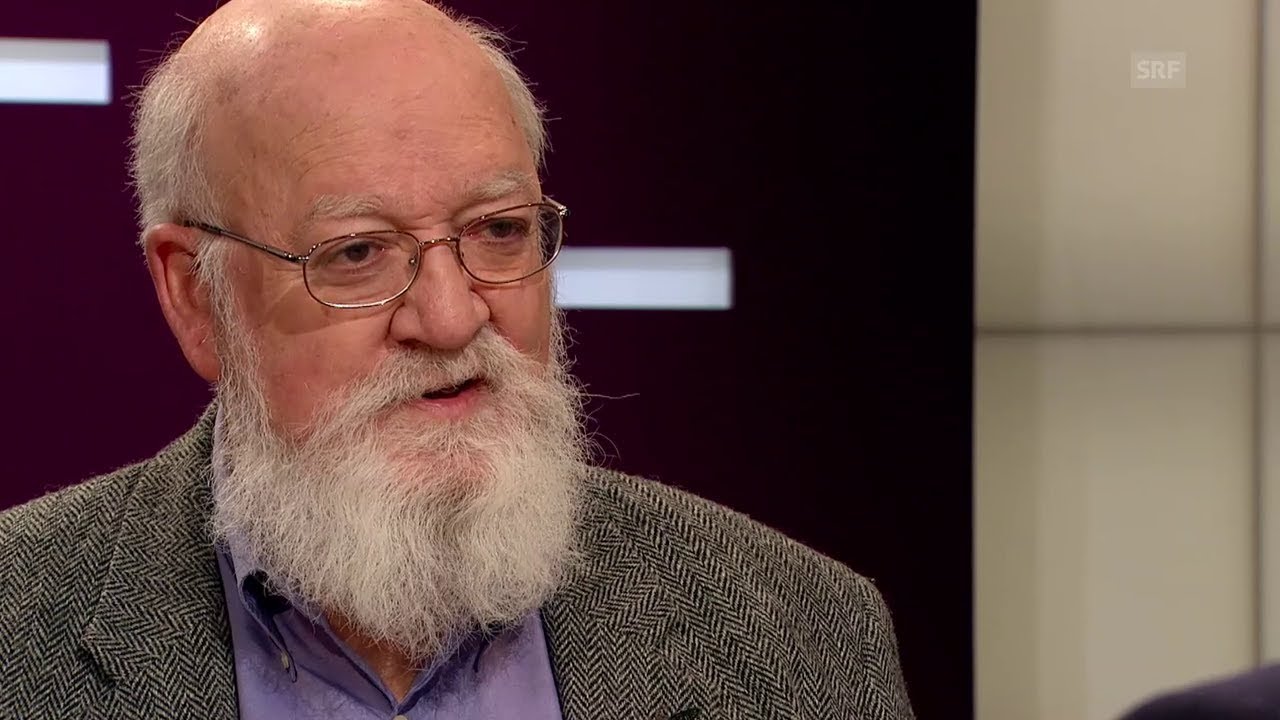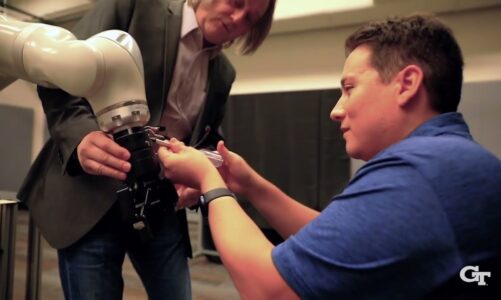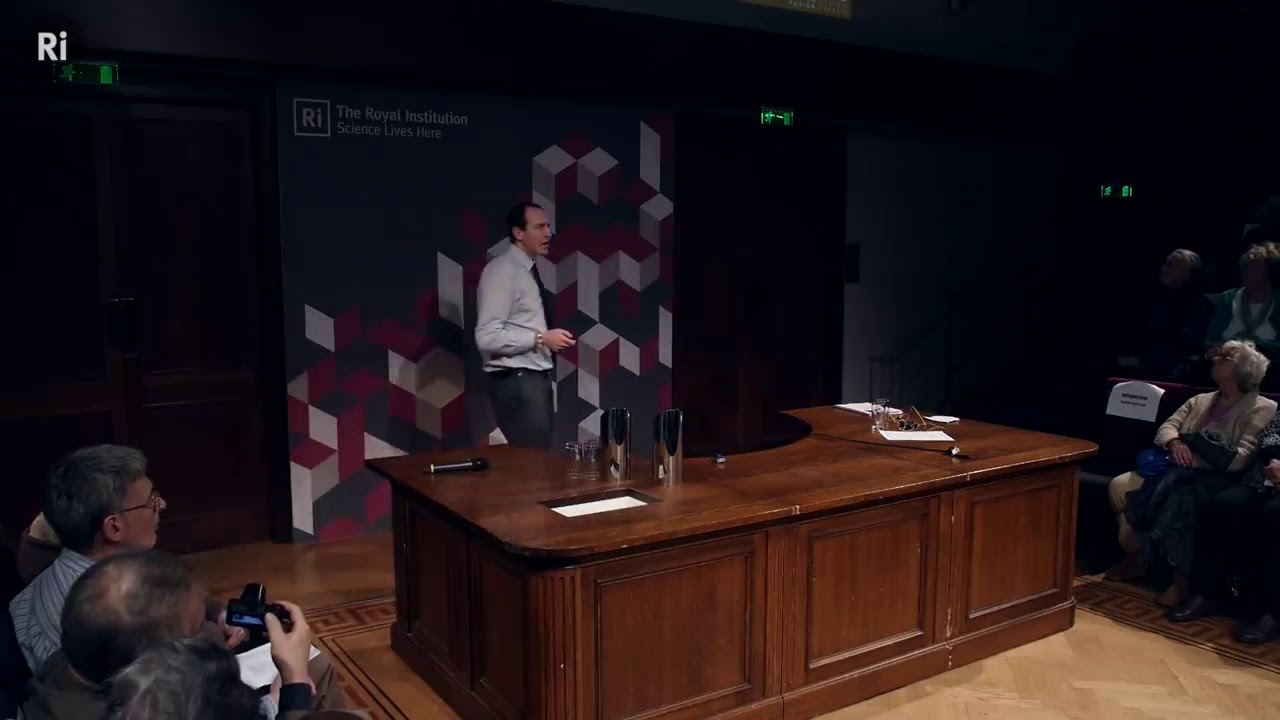SRF Kultur
Daniel Dennett is one of the most influential philosophers in the world. He is an atheist, Darwinist and materialist. For him, we humans are nothing but a complex piece of matter subject to natural laws. He talks to Yves Bossart about our consciousness, freedom and faith.
German version: https://youtu.be/Igb-Xstv0o0
Source




Vielen Danke, dass Sie das Gespräch auch ohne Simultanübersetzung hochladen.
Thanks for uploading this in this "raw" form, very interesting!
Sehr interessantes Gespräch! Danke auch, dass Sie dem oft geäußerten Wunsch, die Originalversionen hochzuladen, nachgekommen sind!
very intersting but incoherent. You is also your brain. It doesnt answer the question about where the "I"ness in the brain develops. Where the "I"ness of something developes. His userinterface must be seen by the homunculus, that doesnt exist. Even if its a flexible homunculus.
Denett mus be stupid. If everything is determined than it amkes no senste to try to achieve something because it makes no difference… People who stop believing in their free will have no problem unless they start act like it. If denett would act like he talks he would be a bum or dead. There must be something quantumlike in the "I"ness entity in our brain.
Finally, Daniel Dennett's appearance on this valuable program! Thank you. I've greatly appreciated it, in particular in the orignal, undubbed version.
Thanks for the subtitled version
'Magic, Illusions, and Zombies': An Exchange, Daniel C. Dennett
Daniel C. Dennett : Recent Work – Tufts Universityase.tufts.edu/cogstud/dennett/recent.html
Interesting discussion, but one thing that kept amazing me was how they each spoke in their own language as if they were both speaking the same language. Even if they both know both languages, it's got to be tough to keep to your own language the whole time.
Amazing mind and an informative interview. Thanks!
How are they understanding each other? And if they do understand each other, why converse in two languages?
i think his reply to "the mary scientist" was really weak. Its very clear that she learned something new, when she experienced colour for the first time, namly the experience of colour. Its the distinction that dennett himself makes…knowing what and knowing how. She did know the what ( what are colours/ light, namly the theory) , but she didnt know the how colours are experienced.
evolution. lol. abrahamic mumbo jumbo. lol. big bang. lol
designed by the evolution. lol. look at the weak human compared to the one 2000 years ago and more.
funny when people hear that when i do not believe in the big bang theory then i would automatically believe in the abrahamic god of some flavor.
no evidence for gods, but even less for the big bang!
abrahamism was never valuable!! The pagan ones where
fuck democracy!! look at how many people it murdered, raped only since the end of ww2
Bernardo Kastrup has, in my humble opinion, successfully argues for the existence of God.
I think Daniel Dennets arguments are actually really weak, he says we are build up of things who don't have such a thing as conciousness. But because there are a lot of them and structured in a extremly complex way conciousness would be possible. It is like expecting a living creature from putting a lot of (nonliving) lego blocks together. Btw there is already proof that people have the ability to counter their decisions, so there must be some kind of free will.
Theistic thinkers have long noted…
The universe must have a beginning, else it could not expand. Thus the expanding universe is a contingent effect of that inexplicable Singularity.
The cause of the effect, then, must transcend the effect (else it could not be the Cause).
Since the effect is subject to time and space and physicality, the Cause must be timeless (not subject to change) and immaterial (not contingent physicality) else it would be no cause.
There can be no infinite regress of causes, per Occams Razor.
So here we are… Gen. 1:1: "In the Beginning God created the Heavens and the earth…"
very nice qs from the journalist
At 5:20 Dennett finally tells us the real reason he became an atheist. Namely, that he didn’t like a pastor, but not because of logic or reason. In other words, it’s not that he doesn’t believe in God per say. But rather he hates the idea of being accountable to God. And he was resentful to a pastor. So now we know. Pride.
Dan Dennett and I look like identical twins, from behind.